Epitalon is a synthetic peptide made up of four amino acids: alanine, glutamic acid, glycine, and aspartic acid. It was developed from epithalamin, a pineal gland peptide first studied by Russian scientist Vladimir Khavinson.
Research suggests this peptide may help with cellular function, melatonin production, and telomerase activity—an enzyme linked to DNA protection. Scientists are still studying how it works in vivo (inside living organisms).
This peptide is for research purposes only and is not approved for human use.
Epitalon is believed to have potential anti-aging benefits, such as increasing lifespan, regulating metabolism, improving skin health, and enhancing overall well-being. Studies suggest Epitalon may help regulate melatonin and cortisol levels, key hormones associated with aging processes.
Direct Peptides supplies Epithalon (Epitalon) for research purposes only.
This peptide may help the body by:
Scientists believe these effects could help with cancer prevention, reproductive function, and overall aging, but more research is needed.
Several research peptides show promising effects in aging and cellular health studies. Two of the most studied are FOXO4-DRI and NAD+.
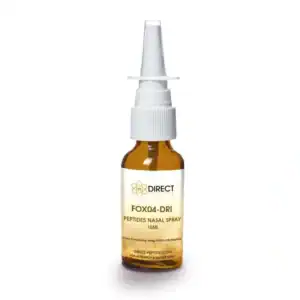 FOXO4-DRI is being explored for its role in clearing senescent cells—old cells that stop dividing but still affect the body.
FOXO4-DRI is being explored for its role in clearing senescent cells—old cells that stop dividing but still affect the body.
Accumulation of these cells is linked to aging and disease. Scientists think FOXO4-DRI may help remove these cells, potentially improving tissue regeneration and longevity.
Learn more on the FOXO4-DRI category page.
NAD+ (Nicotinamide Adenine Dinucleotide) is essential for cell metabolism, DNA repair, and energy production.
Research shows NAD+ levels decrease with age, which may impact overall health.
Scientists are studying whether increasing NAD+ can support mitochondrial function, reduce inflammation, and slow aging.
To know more about it, please visit the NAD+ category page.
Both FOXO4-DRI and NAD+ are still being studied and are not approved for human use.
The pineal gland produces melatonin, which helps regulate sleep. As people age, pineal gland function declines, which may cause sleep disturbances and hormonal changes.
Research suggests that pineal gland peptides, like Epitalon, may help regulate melatonin levels and maintain chromatin stability (DNA structure). These effects could play a role in aging and overall health.
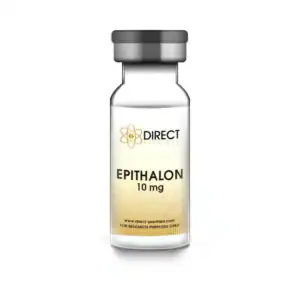 Telomeres are protective caps on DNA that shorten with age. Telomerase activity helps keep them intact, possibly slowing aging.
Telomeres are protective caps on DNA that shorten with age. Telomerase activity helps keep them intact, possibly slowing aging.
Animal studies show this peptide may activate telomerase, allowing cells to function longer. A control group of rats given Epitalon had more telomerase activity, hinting at potential longevity benefits. However, these studies need further confirmation.
Aging and disease are linked to oxidative stress, which happens when reactive oxygen species outnumber the body’s defenses.
Studies suggest this peptide may boost superoxide dismutase (SOD) activity, a key antioxidant enzyme. When tested in vivo, Epitalon increased total antioxidant capacity by 36%, potentially protecting cells from damage.
The pineal gland peptide Epitalon appears to stimulate melatonin production in older individuals. In a room temperature-controlled study, subjects who took this peptide had improved sleep cycles and circadian rhythm synchronization.
One study found this peptide increased melatonin release at night, which may help improve sleep in aging individuals. However, more studies are needed.
Explore Peptide Supplies at Direct Peptides for all your reconstitution requirements.
Research suggests this peptide may help with cancer prevention, but studies are still early. In animal studies:
While these results are promising, Epitalon is not a cancer treatment and should not replace traditional therapies.
The study of Epitalon and other synthetic peptides could impact aging research, cell health, and disease prevention. Scientists are focusing on:
Although research is promising, more clinical studies and peer-reviewed trials on Google Scholar are needed before any conclusions can be drawn.
Epitalon and other peptides like FOXO4-DRI and NAD+ show exciting potential in scientific studies. Their effects on telomerase activity, cancer prevention, and cellular health warrant further exploration.
However, it is essential to note that Epitalon is for research purposes only. While early results look promising, it is not an approved supplement or treatment.
The scientific community continues to investigate these synthetic peptides to unlock new possibilities in aging and health research. Future discoveries may lead to groundbreaking developments in longevity science.
[1] Khavinson V, Diomede F, Mironova E, Linkova N, Trofimova S, Trubiani O, Caputi S, Sinjari B. AEDG Peptide (Epitalon) Stimulates Gene Expression and Protein Synthesis during Neurogenesis: Possible Epigenetic Mechanism. Molecules. 2020 Jan 30;25(3):609.
[2] Khavinson V, Razumovsky M, Trofimova S, Grigorian R, Razumovskaya A. Pineal-regulating tetrapeptide epitalon improves eye retina condition in retinitis pigmentosa. Neuro Endocrinol Lett. 2002 Aug;23(4):365-8.
[3] Anisimov VN, Mylnikov SV, Khavinson VK. Pineal peptide preparation epithalamin increases the lifespan of fruit flies, mice and rats. Mech Ageing Dev. 1998 Jun 15;103(2):123-32.
[4] Avolio F, Martinotti S, Khavinson VK, Esposito JE, Giambuzzi G, Marino A, Mironova E, Pulcini R, Robuffo I, Bologna G, Simeone P, Lanuti P, Guarnieri S, Trofimova S, Procopio AD, Toniato E. Peptides Regulating Proliferative Activity and Inflammatory Pathways in the Monocyte/Macrophage THP-1 Cell Line. Int J Mol Sci. 2022 Mar 25;23(7):3607.
[5] Anisimov VN, Khavinson VKh, Popovich IG, Zabezhinski MA, Alimova IN, Rosenfeld SV, Zavarzina NY, Semenchenko AV, Yashin AI. Effect of Epitalon on biomarkers of aging, life span and spontaneous tumor incidence in female Swiss-derived SHR mice. Biogerontology. 2003;4(4):193-202.
[6] Yue X, Liu SL, Guo JN, Meng TG, Zhang XR, Li HX, Song CY, Wang ZB, Schatten H, Sun QY, Guo XP. Epitalon protects against post-ovulatory aging-related damage of mouse oocytes in vitro. Aging (Albany NY). 2022 Apr 12;14(7):3191-3202.
Buy all Vials from Direct Peptides Norway Today!The products mentioned in this post is intended for research and medical purposes only to be used by trained professionals.
No. Epitalon is not the same as Epithalamin. Epithalamin is a natural peptide complex taken from the pineal gland. Epitalon is a synthetic tetrapeptide created to copy specific biological effects of Epithalamin. Research studies use Epitalon because it has a known structure, stable composition and produces consistent results in laboratory experiments.
Research studies show Epitalon affects immune activity during aging. Animal and cell models report changes in immune signaling and increased activity of thymus related immune cells. These effects suggest Epitalon helps regulate immune balance as organisms age. Current evidence comes from laboratory and animal-studies, and researchers continue to examine the strengths and limitations of these immune effects.
Research shows Epitalon increases nighttime melatonin production by acting on the pineal gland. Melatonin controls circadian rhythm, which sets sleep and wake timing. Studies focus on restoring hormone release rather than directly measuring sleep behavior. Improved melatonin signaling supports a stable circadian rhythm, which plays a key role in maintaining normal sleep patterns in aging research models.
Research studies show Epitalon activates telomerase, supports telomere length, and improves DNA repair. These actions protect cells from age related damage. Epitalon also supports antioxidant systems and cellular stability. Together, these effects slow key biological changes linked to cellular aging in laboratory and animal research models.
Experimental studies show Epitalon reduces oxidative stress by increasing antioxidant enzyme activity. Research models report higher superoxide dismutase levels and lower reactive oxygen species. These changes protect cells from oxidative damage, which increases with age. Current findings come from controlled laboratory and animal studies focused on cellular aging processes.
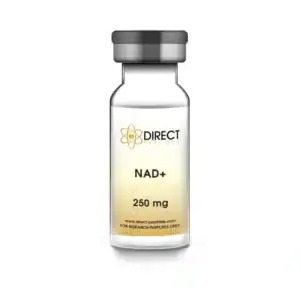
TWIN PACKS
NAD+ Peptide Vial
£41.48 – £149.31Price range: £41.48 through £149.31 Select options This product has multiple variants. The options may be chosen on the product page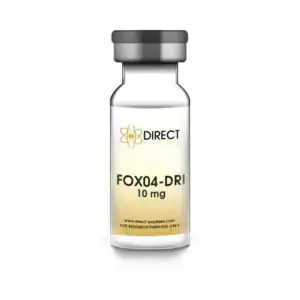
BULK BUY
FOXO4-DRI Peptide Vial
£197.40 – £671.16Price range: £197.40 through £671.16 Select options This product has multiple variants. The options may be chosen on the product page
BULK BUY
Epithalon Peptide Vial
£13.75 – £318.75Price range: £13.75 through £318.75 Select options This product has multiple variants. The options may be chosen on the product page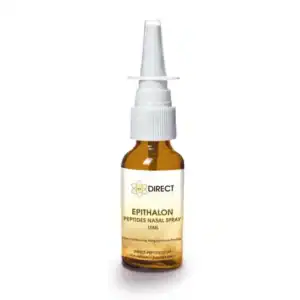
Epithalon Nasal Spray
£21.75 – £38.50Price range: £21.75 through £38.50 Select options This product has multiple variants. The options may be chosen on the product pageALL CONTENT AND PRODUCT INFORMATION AVAILABLE ON THIS WEBSITE IS FOR EDUCATIONAL PURPOSES ONLY.
DISCLAIMER: These products are intended solely as a research chemical only. This classification allows for their use only for research development and laboratory studies. The information available on our Norway Direct Peptides website: https://direct-peptides.com is provided for educational purposes only. These products are not for human or animal use or consumption in any manner. Handling of these products should be limited to suitably qualified professionals. They are not to be classified as a drug, food, cosmetic, or medicinal product and must not be mislabelled or used as such.